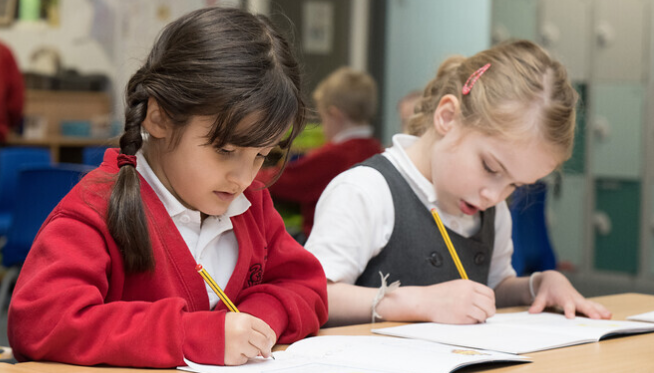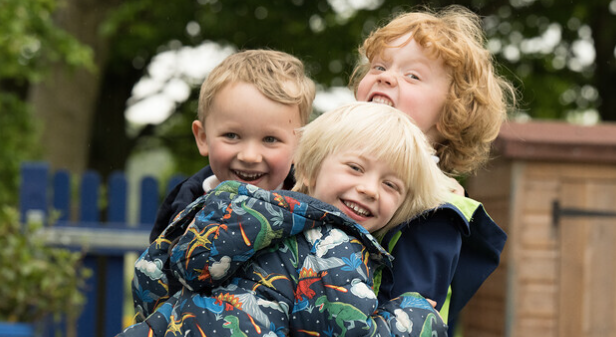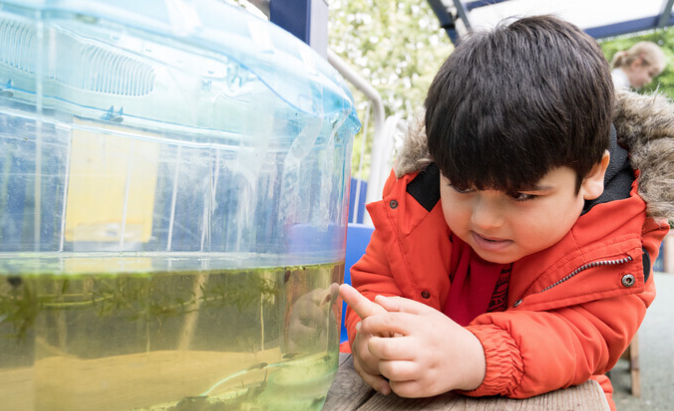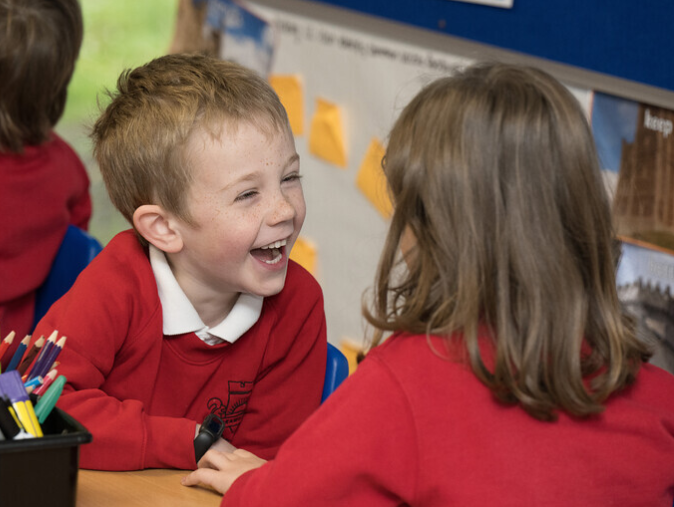EYFS
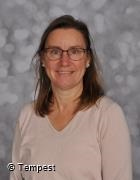
Welcome to EYFS:
EYFS Leader: Mrs Freer
EYFS Teacher: Mrs Herring
nicola.freer@bramhopeprimaryschool.co.uk
naomi.herring@bramhopeprimaryschool.co.uk
Introduction to EYFS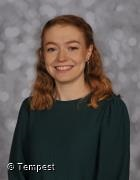
“Every child deserves the best possible start in life and the support that enables them to fulfil their potential. Children develop quickly in the early years and a child’s experiences between birth and age five have a major impact on their future life chances. A secure, safe and happy childhood is important in its own right.” Statutory framework for the Early Years Foundation Stage, Department for Education 2021.
In our school, we have two Reception classes of 30 children. Each Reception class has a reception teacher and teaching assistant. The two classes work as a unit to enable children to access indoor and outdoor provision. All staff work together as a team.
Within Early Years at Bramhope Primary, we aim to:
- Give each child a happy, positive and enjoyable start to their school life
- Foster a love of learning
- Create an enabling environment and a wide range of opportunities
- Encourage children to develop independence
- Offer a broad and rich curriculum that incorporates children’s interest
- Provide a curriculum that utilises the school’s environment
Directly teach the literacy and numeracy skills which are essential for future academic success.
“Every child deserves the best possible start in life and the support that enables them to fulfil their potential. Children develop quickly in the early years and a child’s experiences between birth and age five have a major impact on their future life chances.”
Statutory framework for the Early Years Foundation Stage, Department for Education 2021
Within Early Years at Bramhope Primary, we aim to:
-
Foster a love of learning
-
Create an enabling environment and a wide range of learning opportunities, where adults facilitate the children’s learning.
-
Build strong positive relationships between children and adults to enable positive interactions.
-
Develop independent learner
-
Offer a broad and rich curriculum that incorporates children’s interest
-
Provide a curriculum that utilises the school’s environment
-
Challenge children at their own challenge point to develop resilience and persistence.
Our primary intent is to teach children how to become readers, writers and mathematicians. However, our curriculum is broad and we want to inspire children to become artists, geographers, musicians, scientists, designers, historians' linguists and sportsmen and women. Outside the classroom, we want to teach children to become good citizens.
Our school motto reflects our school philosophy. It has three core aims which are woven through our lessons:
Belong
-
Ensuring children feel that they belong in our school community
-
Ensuring equality and diversity is woven through the curriculum
-
Helping children to learn about the local and global community
We start the year with the topic All About Me which teaches the children that despite our differences, we all belong in our class, school and community and are valued equally. Our diversity texts help us to build on our knowledge and understanding.
Each week we welcome a mystery visitor from the local community when we find out about different jobs, festivals and cultures. We are keen to challenge stereotypes, for example by asking a policewoman to come and talk to the children.
To learn about the global community, we have established links with Salvation Way Primary School in Uganda to give our children insight into the lives of others.
Be Your best
-
Through putting challenge at the heart of every lesson, we build resilience and independence
-
Having high expectations of academic achievement
-
Demonstrating a positive attitude to learning
Challenge is seen in the Early Years through our progressive curriculum, adult-led literacy and Maths groups and independent challenges in the continuous provision. Our children are encouraged to become increasingly independent and challenge themselves in their learning choices.
Be Bramhope
-
Developing leaders by being a role model to others
-
Creating high aspirations for the future
-
Enabling children to make responsible, healthy choices
-
Building a love of the outdoors
We inspire our children through mystery visitors to have high aspirations for the future, for example aspiring to become a biologists, paramedics or NASA space engineers.
Through cooking sessions and growing vegetables in the school garden, children have the opportunity to talk about healthy food choices. We take advantage of our extensive school grounds through our weekly outdoor activities e.g. observing the lifecycle of a frog and seasonal changes.
Structure of EYFS
In our school, we have two Reception classes of 30 children. Each Reception class has a reception teacher and teaching assistant. The two classes work as a unit to enable children to access indoor and outdoor provision.
The Curriculum
The Early Years Foundation Stage Framework and The Early Years Development Matters are the basis of our Early Years curriculum and learning is planned through exciting half termly topics.
Our reception classes follow the structure outlined in the EYFS framework. The EYFS framework includes seven areas of learning and development, all of which are seen as important and interconnected.
Three of the areas are referred to as prime areas. These are particularly important for igniting children’s curiosity and enthusiasm for learning, forming relationships, and thriving (Early Years Framework 2021).
The prime areas are:
|
Communication and language |
Listening, Attention and Understanding Speaking |
|
Personal, Social and Emotional Development |
Self-regulation Managing Self Building Relationships |
|
Physical Development |
Fine Motor Gross Motor |
The prime areas are strengthened and applied through the specific areas:
|
Literacy |
Comprehension Word Reading Writing |
|
Mathematics |
Numbers Numerical patterns |
|
Understanding the World |
Past and present People, culture, and communities |
|
Expressive Arts and Design |
Creating with materials Being imaginative and expressive |
We enrich the Early Years Framework with our bespoke curriculum. Our curriculum enhances the experiences and opportunities available to our pupils. We aim to provide:
-
Weekly small group cooking sessions in our reception kitchen, which works on developing cooking skills.
-
Weekly school garden visits to do outdoor activities such as; observing seasonal changes, observing pond life, plant vegetables, mini beast hunts.
-
Weekly visits to the school library for a story session and to choose a book to share with their adults at home.
-
Weekly visits from a ‘mystery visitor’ (parent or an adult from the community) who either introduces the world of work or explains about a broad range of festivals, hobbies, or interests from first-hand experiences.
Teaching
Children receive a balance of adult focused, adult initiated and child led activities, which are adapted throughout the year as they transition into Year 1.
There are set routines that we follow each day. Pupils are taught in their classes for Maths, Literacy and understanding the world teaching lessons and grouped into smaller groups for phonics. They mix between classes for continuous provision. Continuous provision is an opportunity for children to learn through play. In addition, pupils have adult-led sessions to support specific areas of learning such as internet safety or healthy relationships.
We adapt our timetable throughout the year and have longer periods of adult-led teaching as the year progresses. Here is an example of a spring term timetable:
-
8:35am – 8:45am Settle into school / Fine motor activities
-
8:50am Register
-
8:55am Phonics
-
9:40am Snack and diversity book
-
9:50am Continuous provision (learning through play)
-
10:50am Handwriting
-
11:00am Maths
-
11:30am Lunch and outdoor play
-
12:30pm Mastering Maths
-
12:45pm Literacy
-
1:05pm Continuous provision
-
2:40pm Understanding the world lesson
-
3:15pm home time
Phonics and reading
Phonics is fundamental to the development of pupil’s reading and writing. We currently follow the ReadWriteInc phonics programme to provide systematic synthetic phonics teaching.
Children read books appropriate to their reading level. The children are given a book as soon as they can blend sounds to read simple words.
Library visits. Each week, pupils also select a book to share with a parent or carer from the school library.
Bookflix
The aim of Bookflix is to introduce pupils to a wide range of literature and provide opportunities for all pupils to read, listen to and talk about literature by a broad and diverse range of authors. The books have been selected by Pie Corbett, a well-known author and literacy expert in schools. They include a store of classic and essential reads that help children engage at a deeper level and enter the world of story. Children will be expected to have read all the 12 recommended texts in Reception.
Book Club
This is a timetabled part of the week in which teachers and pupils recommend books and authors together. This helps to embed a reading for pleasure culture. Initially, will recommend the ‘Bookflix’ books then they will choose other books.
We expect parents to read daily with their children. Please see our commitment to reading document for more information as to how reading is taught at Bramhope.
Talk through stories
We help children to get to know the story well: the plot, the characters, and their actions and motives. We develop their vocabulary by focussing in on eight words from the story. These are words that children are unlikely to hear in everyday conversation but are likely to come across in stories. For example, in I’m in charge by Jeanne Willis, we chose bellowed, startled, barged, sneaked, grinned, dreadful, stomped, refused. Children’s understanding of each word is then developed in the context of their everyday lives.
In literacy lessons we have a wide variety of quality key texts which are a mixture of classic and more recent books, as well as non-fiction and poetry. Many of our children at Bramhope live in a small village community and therefore our books are selected to broaden their knowledge and understanding of how other people might live in their localities and around the world. Such texts are part of our Equality and Diversity programme. They stimulate discussion and support our PSED (personal, social and emotional development).
In the spring term we aim to teach specific handwriting lessons which links with the ReadWriteInc phonics programme to help children to develop their writing skills.
Maths
We teach Maths daily as an adult-led teaching session. We follow White Rose Maths scheme of work and NCETM maths mastery.
White Rose Maths underpins the Educational Programme for Mathematics (DfE March 2021) which supports us to deliver a curriculum that embeds mathematical thinking and talk. White Rose Maths provides a variety of opportunities to develop the understanding of number, shape, measure, and spatial thinking.
NCETM Mastering maths ensures pupils acquire a deep, long-term, secure, and adaptable understanding of the subject. The phrase ‘teaching for mastery’ describes the elements of classroom practice and school organisation that combine to give pupils the best chances of mastering maths. Achieving mastery means acquiring a solid enough understanding of the maths that has been taught to enable pupils to move on to more advanced material.
To develop conceptual understanding of number, we teach children to use manipulatives such as Numicon, 5 and 10 frames, dice, counters and unifix.
Continuous provision – learning through play
Play supports teaching and learning within the foundation stage. Each learning area has cross-curricular resources, which children can access independently throughout the day. Continuous provision provides children with stimulating, active play to encourage creative and critical thinking alongside other children, as well as on their own. Children can practise skills, build upon and revisit prior learning and experiences at their own level and pace. Play provides children with the opportunity to pursue their own interests and consolidate their understanding and skills.
Children learn to adapt, negotiate, communicate, discuss, investigate, and ask questions. Adults take an active role in child-initiated play through observing, modelling, questioning, and commenting to develop vocabulary. They find opportunities to teach and extend play through using language such as ‘have a go’, ‘I wonder’, ‘tell me’ and ‘next time I will…’.
We understand that outdoor play is of equal importance as indoor play and that the outdoor classroom offers children ‘bigger,’ ‘louder’ and ‘messier’ experiences. We offer prolonged periods of continuous provision to enable very high levels of involvement and engagement in their learning.
Children have access to our indoor and outdoor learning areas throughout the school day.
During our continuous provision, we plan ‘in the moment.’ This means we plan the next steps of an individual child’s learning spontaneously, using what the child is interested in.
Inclusion
Our whole school ethos, as well as that of the Early Years, embraces inclusion. We recognise and respect the abilities and strengths of our children at all levels of development and the wealth of knowledge and experience that they bring from their differing backgrounds and cultures.
We give our children every opportunity to achieve their best. We do this by taking account of our children’s range of life experiences when planning for their learning and we set realistic and challenging expectations that meet the needs of individual children, so that children can reach their full potential. We achieve this by planning to meet the needs of all children, including children with special educational needs, children who are more able, children from all social and cultural backgrounds, and children of different ethnic groups.
We monitor children’s progress and take action to provide support as necessary. Where a specific need is identified we will liaise with the Special Educational Needs Co-Ordinator and seek advice from outside agencies, such as the speech and language service.
Speech and language provision
We support children with additional speech and language needs by early identification through communication with nurseries and our own early assessment. When necessary, we refer the children to Away with Words, which is the professional support we access as a school as well as following up any NHS speech and language assessments. When targets are set by Away with words or NHS speech and language, we have a designated person to implement the action plan and work with the children on their targets.
Early Years Pupil Premium
We endeavour to identify our disadvantaged pupils and inform parents or carers of their opportunity to apply for their child’s entitlement to extra funding in school. All extra funding, we receive will be used to support areas in which we identify that the child will best benefit. We will track children’s progress to ensure that they are making good progress and to ensure that support is adjusted to target specific areas as the child develops.
Characteristics of effective learning
The EYFS includes the ‘Characteristics of Effective Learning’ (C.O.E.L.) These help adults identify a child’s attitude to learning and their ability to play, explore and think critically about the world around them.
The three characteristics of COEL (Characteristics of Effective Learning) are:
-
Playing and Exploring- children investigate and experience things and ‘have a go’
-
Active Learning- children concentrate and keep trying if they encounter difficulties, they enjoy achievements
-
Creating and Thinking Critically- children have and develop their own ideas, make links between ideas, and develop strategies for doing things
At Bramhope, adults model and discuss how to develop these learning behaviours. We encourage children to learn from each other and celebrate where we see these characteristics of learning being shown.
Assessment
Ongoing assessment is an integral part of the learning and development processes at Bramhope. Adults observe pupils to identify their level of achievement, interests and learning styles. These observations are used to inform future planning. Through our focus child system, observations are recorded in paper-based learning journals to show their progress over time.
Within the first 6 weeks that a child starts reception, staff will administer the Reception Baseline Assessment (RBA).
The 17 areas of learning are formally assessed each term through clearly defined termly checkpoints, recorded on Arbor and reported to parents. This enables us to track the children’s progress and plan interventions that are needed to close the gap.
Half termly phonics assessments are administered as part of the Read Write Inc phonics programme.
At the end of the EYFS (end of Reception), adults complete the EYFS profile (Statutory requirement) for each child. Pupils are assessed against the 17 early learning goals, indicating whether they are:
-
On track - meeting expected levels of development
-
Not on track - not yet reaching the expected levels of development
Parent partnership
We believe that all parents have an important role to play in the education of their child. We recognise the role that parents have played, and their future role. In reception, parents are encouraged to support children’s learning through completing reading records, simple homework activities and by attending reading, writing and maths workshops throughout the year.
We provide a parent pack at the start of each half term detailing the learning that is planned.
We ensure that parents/ carers are kept up to date with their child’s progress and development, through parents evening, termly reports and verbal feedback. Parents contribute to their child’s learning journey on a termly basis. At this point, parents/carers are encouraged to share anything significant happening in their child’s life and given an opportunity to ask us about their child’s progress and development. In addition to this parent letters are sent as the need arises to provide further information.
If a child’s development levels give cause for concern, teachers will discuss this with the child’s parents/carers and agree how best to support the child.
Click here for What to expect in the Early Years Foundation Stage: a guide for parents
Transition
From nursery to Reception
Children come from several different nurseries and transition information is gathered in July through nursery visits, phone calls to nursery staff and written profiles. Children are given opportunities to visit the school through play and stay sessions so they can familiarise themselves with the teachers and environment. For parents we provide parent information evenings in the summer term prior to the children starting school and 1 to 1 meetings so that any confidential information or concerns can be shared privately.
Reception to Year 1
In summer, prior to the children starting Year 1, children visit their new classroom so they can familiarise themselves with the new Y1 teachers and the new learning environment. Parents are invited to meet staff and all parents are invited to a curriculum information evening in September.
We recognise that every child is unique; they develop and learn in diverse ways and at varying rates. By the end of Reception, we strive for our children to be curious, resilient, willing to share ideas and able to solve problems independently. They will have built positive relationships with peers and adults and will be able to transfer their skills into their next stage of their education.
At the end of Reception, we aim to see:
-
Happy, positive children who love to learn
-
Independent children who take advantage of the wide range of opportunities offered to them
-
Children who have developed executive functioning skills such as planning, organising, flexibility and self-regulation
-
Children who have met the Early Learning Goals
-
Children that have the skills needed to begin the national curriculum in KS1
2023 Parent Workshop Presentations:
Useful Links:
Bramhope’s Teaching and Learning Policy
Bramhope’s overall curriculum statement
What to expect in the Early Years Foundation Stage: a guide for parents
Home Learning in EYFS at Bramhope

